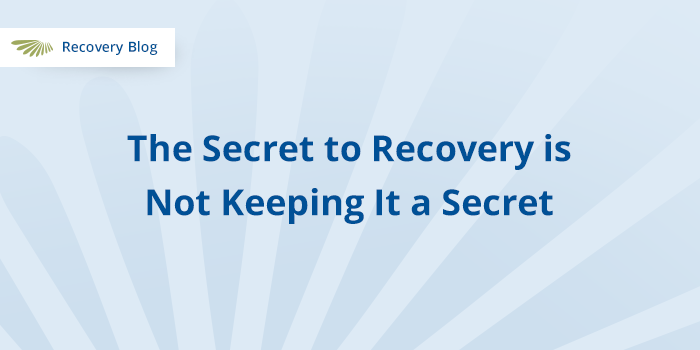Setting and Measuring your SMART Goals
We know that you're focused on your recovery. Staying focused, however, can be a struggle if you're...

Once you've made the decision to cut back on your drinking, or quit altogether, it's a good idea to share this decision with those closest to you.
One of the most important reasons to share your decision to cut back or to stop drinking is to get support from those closest to you. People who cheer on your successes, no matter how great or small, and who respectfully take your recovery into consideration when they are making plans with you. A supportive network can go a long way to help you achieve your goals and decrease or stop your alcohol consumption, especially at the beginning of your road to recovery.
 Your primary support person in recovery will most likely be your sponsor. Someone who is also in recovery, but who has been in recovery for many years. Your sponsor has been in your shoes and knows just how hard it can be, and they’re here to help keep you on track. Maintaining a strong relationship with your sponsor and having someone by your side who is aware of, and supports, your decision will be an ally in situations when you're being pressured to have a drink and will help you stay firm in your resolve not to drink.
Your primary support person in recovery will most likely be your sponsor. Someone who is also in recovery, but who has been in recovery for many years. Your sponsor has been in your shoes and knows just how hard it can be, and they’re here to help keep you on track. Maintaining a strong relationship with your sponsor and having someone by your side who is aware of, and supports, your decision will be an ally in situations when you're being pressured to have a drink and will help you stay firm in your resolve not to drink.
Many people try to hide their desire for sobriety from their friends and family because they're embarrassed about their drinking or they're afraid that they'll fail. They don’t want to open it up as a discussion piece where they have to defend their choices or to have other people weigh in on their decision. While it may be tempting to try to keep it a secret, the odds are that those close to you already know about your problem drinking and will notice when you cut back. Being upfront about your decision will help keep you accountable, making it harder for you to slip and have "just one drink."
Talking about your decision to limit or quit drinking can help those in your life understand why you’re not drinking, but it can also reaffirm to you why you made the decision in the first place. When someone asks if you'd like a drink, replying that you're not drinking because you want to live a healthier lifestyle, have more energy, save money, or simply because you don't want to reinforces your decision to improve your life. If a friend or family member refuses to back down, insisting that you have a drink, it’s a good indication that they’re not going to be an ally for you at this time in your life and you should consider distancing yourself from them until you are further into recovery.
If you are not very close to your coworkers you may not consider discussing your alcoholism or recovery with them. Even if you are close you might be embarrassed about this discussion, especially if you think your drinking has had an impact on your performance at work. Being honest with your boss and coworkers about your drinking, and your plan to cut back or quit, will go a long way towards repairing any damage you’ve done to your professional reputation and interpersonal relationships with your colleagues. As well as building understanding, it can help to ease future confrontations. Many work functions center around alcohol consumption and having those who do the planning aware of your sobriety can help them shift the focus into healthier activities, which other people might enjoy more, too.
Addiction is not a moral failing and there is no shame in quitting drinking or in asking for help to do so. Having the support of those around you is an important part of recovery, and seeking professional help with an alcohol addiction is, for some, an important part of the process. A doctor or addiction specialist can give you the tools you need to stop turning to alcohol to solve your problems.

We know that you're focused on your recovery. Staying focused, however, can be a struggle if you're...
As humans, it’s natural for us to have a competitive nature. However, this is not always healthy,...
Having an alcoholic parent can have a drastic impact on the entire family. Here are some tips on...